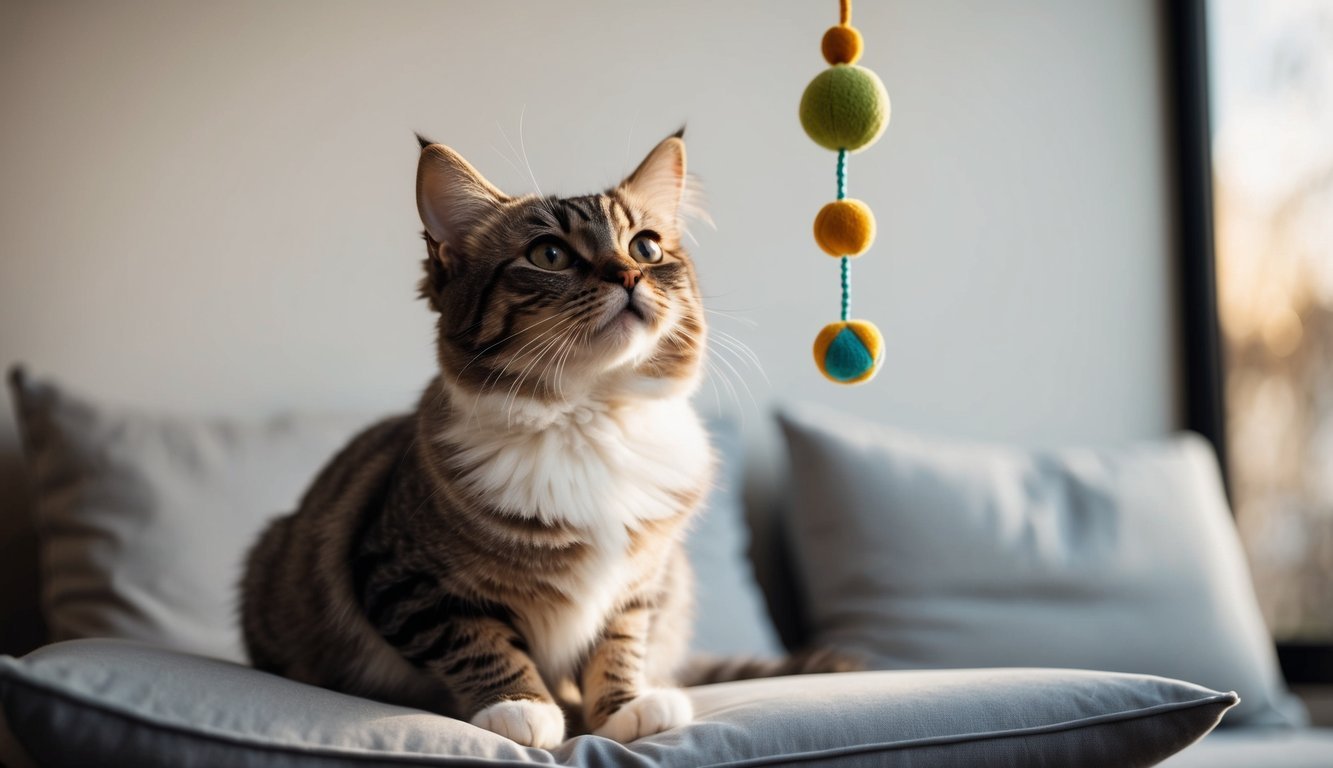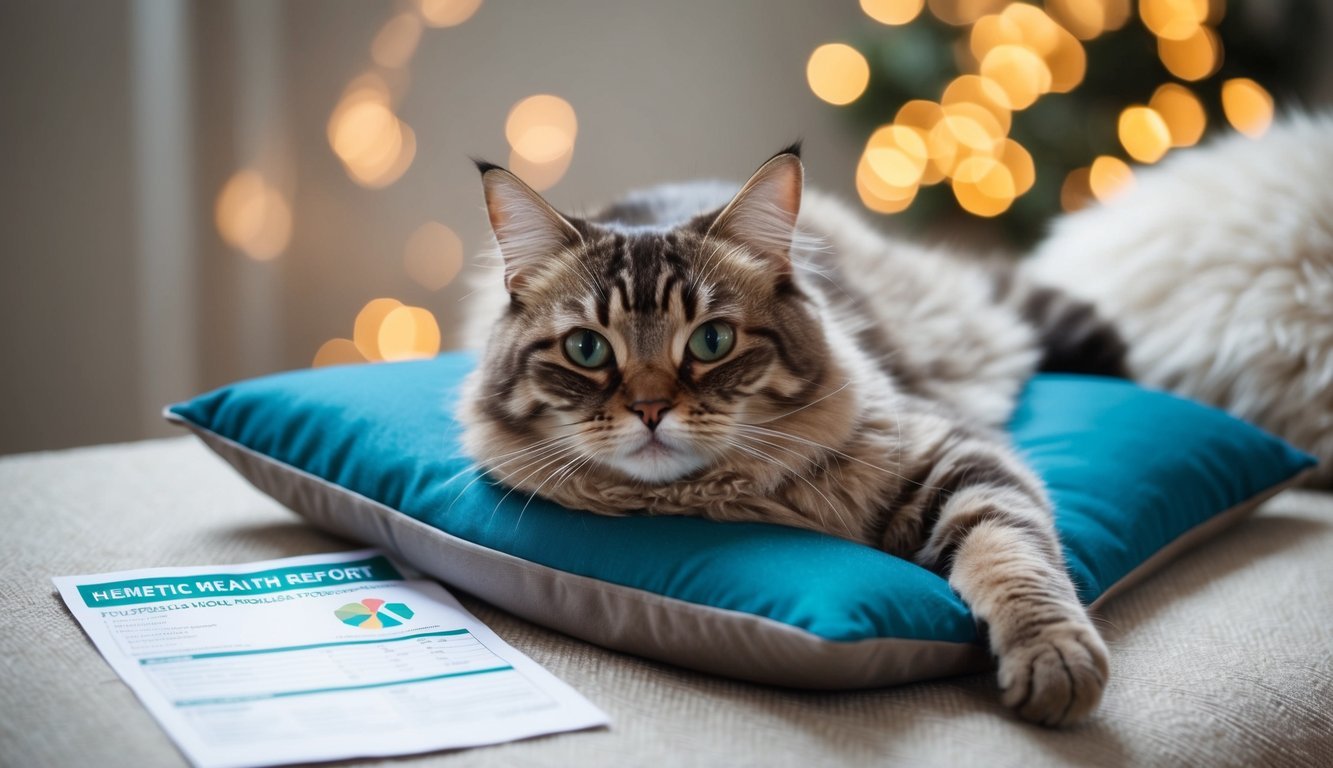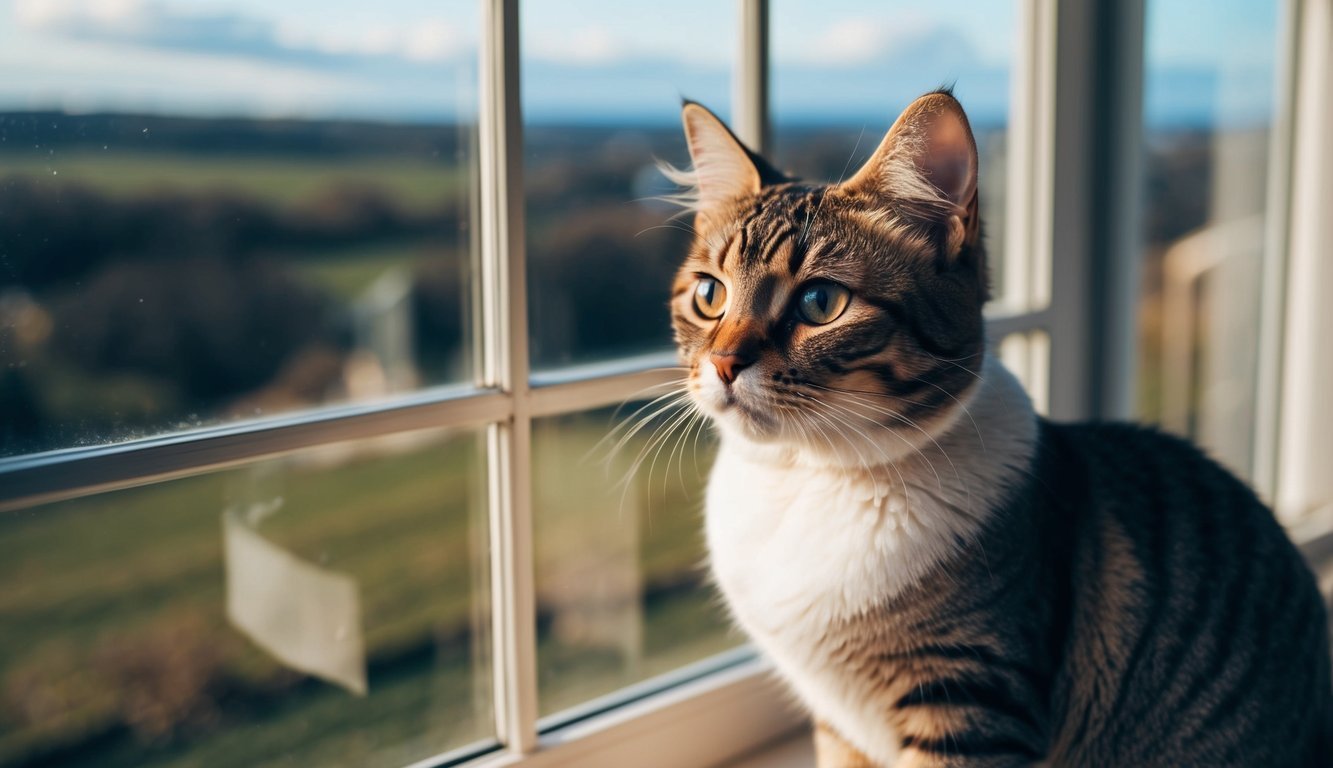Scottish Fold cats are known for their unique folded ears and delightful personalities. Pet lovers appreciate their friendly nature and playful behavior. If you’re curious about what makes these cats stand out or if you’re considering bringing one into your home, you’re in the right place.
These cats originated in Scotland from a spontaneous mutation, which gives them their distinctive look.
Beyond their adorable appearance, they also possess a charming temperament that many families cherish.
Caring for a Scottish Fold can be a rewarding experience, as they tend to bond well with their humans.
In this blog post, you’ll discover essential facts about the Scottish Fold, including their history, personality traits, and health considerations.
Whether you’re contemplating adoption or just want to learn more about this captivating breed, there’s plenty to explore.
Key Takeaways
- Scottish Folds have a rich history rooted in a spontaneous genetic mutation.
- They are known for their friendly and playful temperament, making them great companions.
- Understanding their unique health needs is essential for potential owners.
Origins and History
The Scottish Fold cat has a unique origin story tied to a genetic mutation that affects its ear structure.
This breed was developed from a barn cat that captured the attention of cat lovers and breeders alike.
The First Scottish Fold
The first Scottish Fold, named Susie, was born in the 1960s in Tayside, Scotland.
She had a distinctive fold in her ears, which made her stand out among other cats.
Susie was a white barn cat, and it was her unique appearance that drew interest.
She gave birth to several kittens, two of which also had folded ears.
This was the beginning of a new breed.
William Ross, a Scottish farmer, recognized Susie’s potential and decided to breed her with other cats.
This included crossing her with British Shorthairs and American Shorthairs to help establish the breed.
Development of the Breed
After Susie’s discovery, breeders started focusing on the folded-ear trait.
The genetic mutation responsible for the folded ears is linked to a condition called osteochondrodysplasia.
This affects cartilage, leading to the unique ear shape.
In the 1970s, William Ross officially introduced the Scottish Fold breed to the cat fancy community.
The breed quickly gained popularity in the UK and beyond.
By crossing Susie’s descendants with other breeds, breeders ensured the health and temperament of the Scottish Fold.
Today, these cats are known for their friendly nature and distinctive appearance, making them a favorite among cat owners.
Physical Characteristics

Scottish Fold cats have distinct traits that make them easily recognizable.
Their unique ears, diverse coat options, and round faces contribute to their charming appearance.
Unique Folded Ears
The hallmark of the Scottish Fold is its unique ears.
These ears fold forward and downward, giving the cat an almost owl-like look.
The ear fold happens due to a natural genetic mutation.
Kittens may be born with straight ears, but as they grow, you can sometimes see them fold by about three to four weeks old.
Not all Scottish Folds have the fold; some may have straight ears, especially if they are bred from a non-fold parent.
It’s important to note that the ear shape can affect their overall hearing.
Coat and Colors
Scottish Folds have a variety of coat types, ranging from short to long.
The short-haired variety boasts a dense, plush coat that feels soft to the touch.
The long-haired version has a fuller coat with leg fluff, making them look even more adorable.
They come in a wide range of colors and patterns.
Common colors include solid, tabby, and blue.
Each coat type requires regular grooming to avoid matting and to keep their fur looking nice.
Face and Body
Scottish Folds have a round face that adds to their distinctive look.
Their large, expressive eyes are often copper or gold, giving them a sweet and inviting gaze.
The body is medium-sized, with a sturdy build, typical of breeds like British Shorthairs and American Shorthairs.
They usually weigh between 6 to 13 pounds, depending on their age and diet.
Their tails are medium in length and can be slightly thick at the base, adding to their overall balanced appearance.
Temperament and Care
Scottish Fold cats are known for their sweet personalities and affectionate nature.
They thrive in family settings, making them great companions for both children and adults.
Caring for them involves attention to their social needs, diet, and exercise.
Personality Traits
Scottish Folds have a friendly and easygoing temperament.
They are very sociable and enjoy spending time with their human companions.
Their playful nature keeps them active, so it’s essential to provide a variety of toys that stimulate their intelligence.
These cats are often described as affectionate, and they love showing attention to their families.
They can be independent, but they appreciate interaction and playtime with their owners.
Their sweet disposition makes them a good fit for households with children or other pets.
Caring for Your Scottish Fold
Proper care for your Scottish Fold involves attention to grooming, diet, and exercise.
Their dense coat may require weekly brushing to minimize shedding.
Regular vet check-ups are also important to monitor their health, especially since they can be prone to certain genetic conditions.
When it comes to diet, provide high-quality cat food that meets their nutritional needs.
Controlled portions help avoid weight gain.
Keep them active with daily play sessions—use interactive toys to engage their playful side.
You might also consider puzzle feeders to challenge their problem-solving skills.
Staying involved in their care ensures they remain happy and healthy companions.
Health and Genetics

Understanding the health and genetic traits of Scottish Fold cats is essential for any owner.
These cats are known for their unique appearance, but certain genetic conditions can affect their health.
It’s important to be aware of common health issues and breeding practices to ensure a happy, healthy pet.
Common Health Conditions
Scottish Folds are prone to several health issues.
One major concern is hypertrophic cardiomyopathy (HCM), a heart disease that can lead to sudden death.
Regular vet check-ups are crucial for early detection.
Another common problem is osteo-chondrodysplasia.
This genetic mutation affects cartilage development, causing issues like arthritis, misshapen toes, and inflexible tails.
Many Scottish Folds may also suffer from ear infections due to their unique ear shape.
Additionally, conditions like polycystic kidney disease can appear as they age, which also affects their lifespan.
Regular dental care is also important as neglect can lead to gum disease and tooth loss.
Staying informed and proactive about these concerns can help maintain your cat’s well-being.
Genetic Concerns
The genetic makeup of Scottish Folds largely contributes to their health issues.
The mutation causing their signature ear fold is linked to osteochondrodysplasia.
This means that only one copy of the gene is needed for the trait to show, which raises the risk of health problems.
Breeding practices also play a significant role.
To minimize health issues, responsible breeders often outcross Scottish Folds with other breeds, like the Highland Fold, reducing the prevalence of severe osteochondrodysplasia.
Breeding two Scottish Folds together can result in more severe genetic problems.
The CFA, GCCF, and The International Cat Association have guidelines to help breeders maintain healthier populations.
Breeding Practices
Breeding Scottish Folds requires careful consideration to avoid genetic disorders.
Responsible breeders study family history for health issues and avoid breeding cats with known health problems.
Outcrossing with other breeds helps improve genetic diversity.
This practice not only maintains the distinctive traits of the Scottish Fold but also lowers risks of severe inherited conditions.
Regular testing for conditions like HCM and osteochondrodysplasia is crucial in breeding programs.
Adopting strict health protocols ensures that future generations of Scottish Folds can lead healthier lives.
Such commitment is key to maintaining the breed’s charm without sacrificing health.
Frequently Asked Questions

When considering a Scottish Fold cat, many questions come to mind.
From their personalities to health concerns, knowing these details can help you decide if this breed is right for you.
What’s the typical personality of a Scottish Fold cat?
Scottish Folds are known for their friendly and affectionate nature.
They enjoy being around people and often form strong bonds with their owners.
Their playful attitude can bring joy to any household.
How long do Scottish Folds usually live?
The typical lifespan of a Scottish Fold cat is about 14 to 16 years.
With proper care, including regular vet check-ups and a good diet, they can enjoy a healthy and lengthy life.
Can you tell me about common health issues in Scottish Fold cats?
Scottish Folds can face some health issues, particularly related to their genetic trait of folded ears.
Some common problems include joint issues like arthritis and heart problems.
Regular vet visits can help catch any concerns early.
Why might a Scottish Fold kitten be more costly than other breeds?
Scottish Fold kittens can be more expensive due to their unique genetics and limited breeding.
The demand for this breed adds to the cost, as breeders ensure the health and conformation of their cats.
Are Scottish Folds considered good companions?
Yes, Scottish Folds are excellent companions.
They are adaptable and sociable, making them great for families and singles alike.
Their loving nature tends to endear them to everyone around.
What are some potential downsides to owning a Scottish Fold?
While they are wonderful pets, some downsides exist.
Their specific health issues and the need for regular check-ups can require extra attention and care.
Some people also find their playful nature can lead to mischief.


